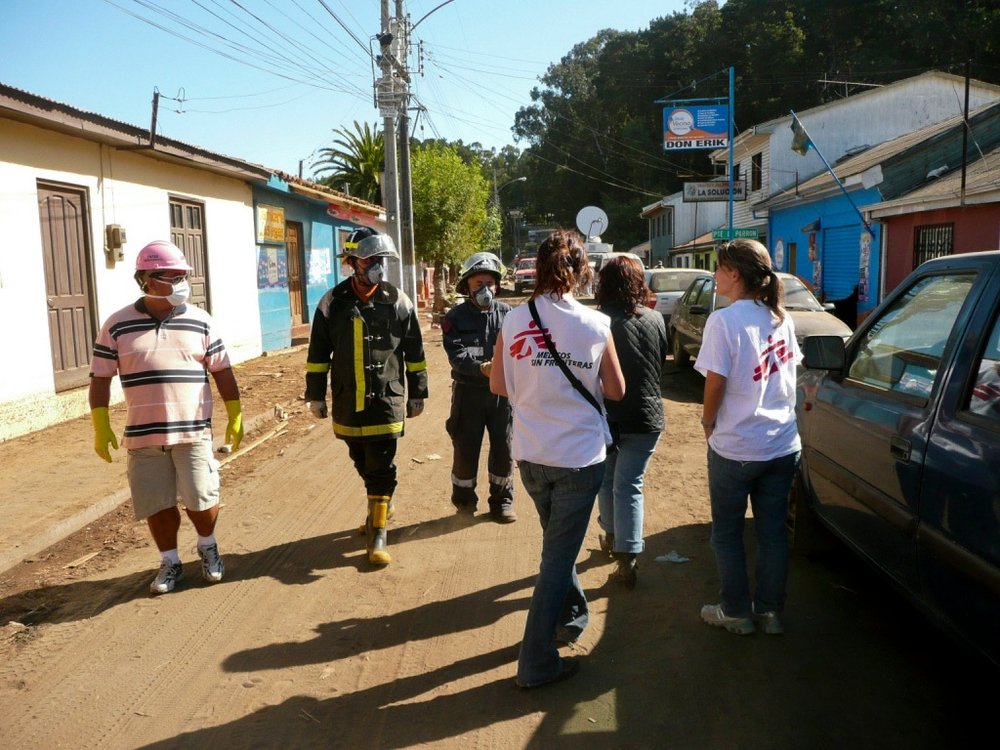
MSF teams provide assistance to a traumatised population further affected by powerful aftershocks.
The First Days After the Quake
Pierre Garrigou, a MSF logistician from Argentina, describes the situation he encountered in the first days after the quake: “Inland, in the areas far from the coast, there were lots of destroyed buildings, lots of rubble. Yet on the coast, earth tremors were compounded by a tsunami, which really devastated everything. While your home may collapse as a result of the earthquake, you may still be able to rescue something amongst the rubble; yet on coastal areas houses were literally swallowed by the tide”. Many people lost their belongings. Many were left homeless and had to camp in precarious makeshift shelters. MSF therefore focused initially on improving people’s living conditions by distributing plastic sheeting, rope, blankets and jerry cans, along with hygiene kits.
As a result of the losses suffered during the earthquake and the powerful aftershocks that followed, people are deeply traumatised. Each new tremor intensifies the tension and fear in the population. “Once, an aftershock occurred when we were with a lady and her four children,” explains Lina María Peña Peñaranda, an MSF psychologist from Colombia. “She started to cry and I tried to sooth her and comfort her. She did not want us to leave. Her legs were shaking badly and she could not stop crying. We had to keep her company for a long time”.

Children are especially affected by the situation. In Licantén, a woman named Bernardita Soto says her three-year-old son vomits every night and she herself finds it hard to sleep. Macarena Huerta, a kindergarten teacher, says a crèche has been set up in a fenced field as a sanctuary for frightened children. It’s very stressful for children, she adds. They cry every time there is a new tremor. And yet at the same time, they are highly disciplined and know that when the earth shakes they should position themselves in the middle of the prairie.
Everyday, in their operational sites in and around Talca and Concepción, MSF staff works with municipal and state officials to identify the most pressing needs. Then, MSF logisticians, medical staff and psychologists divide themselves into teams, load supplies into lorries, and travel to outlying areas that need assistance. In areas closer to the coast, MSF professionals distribute medical kits to the population while also providing psychological support.
